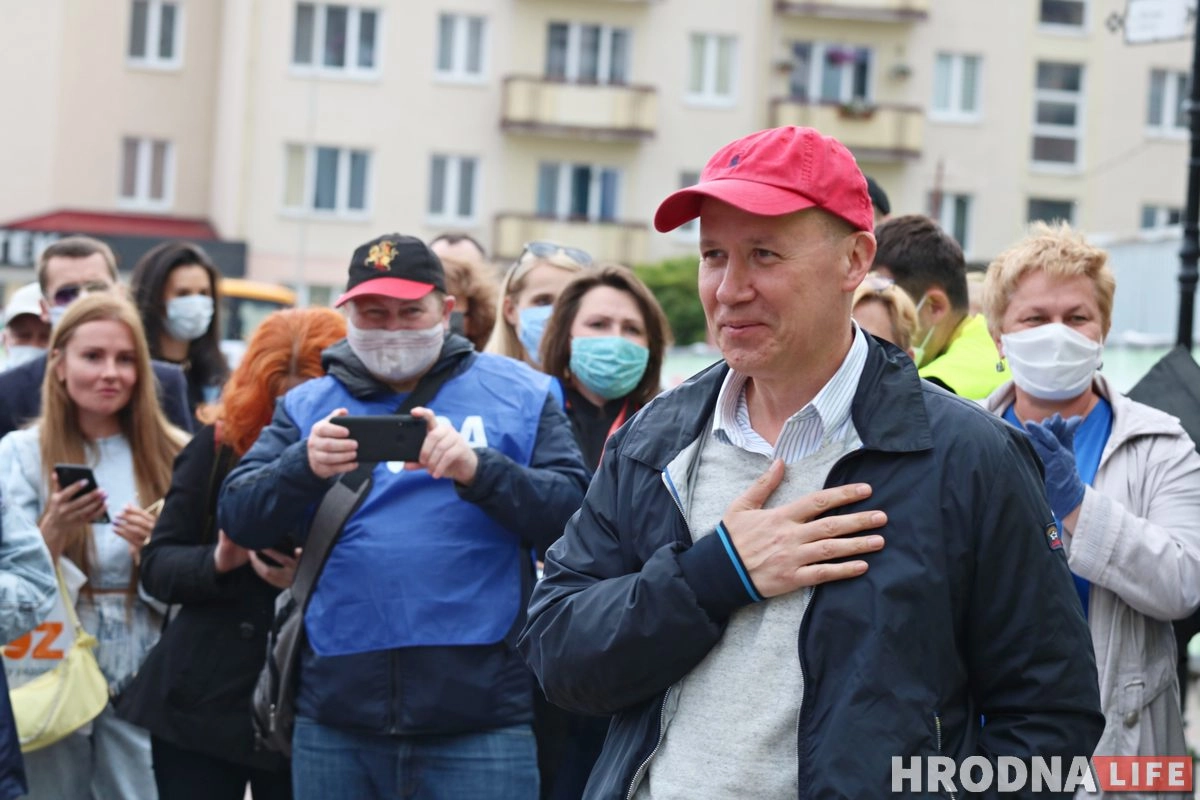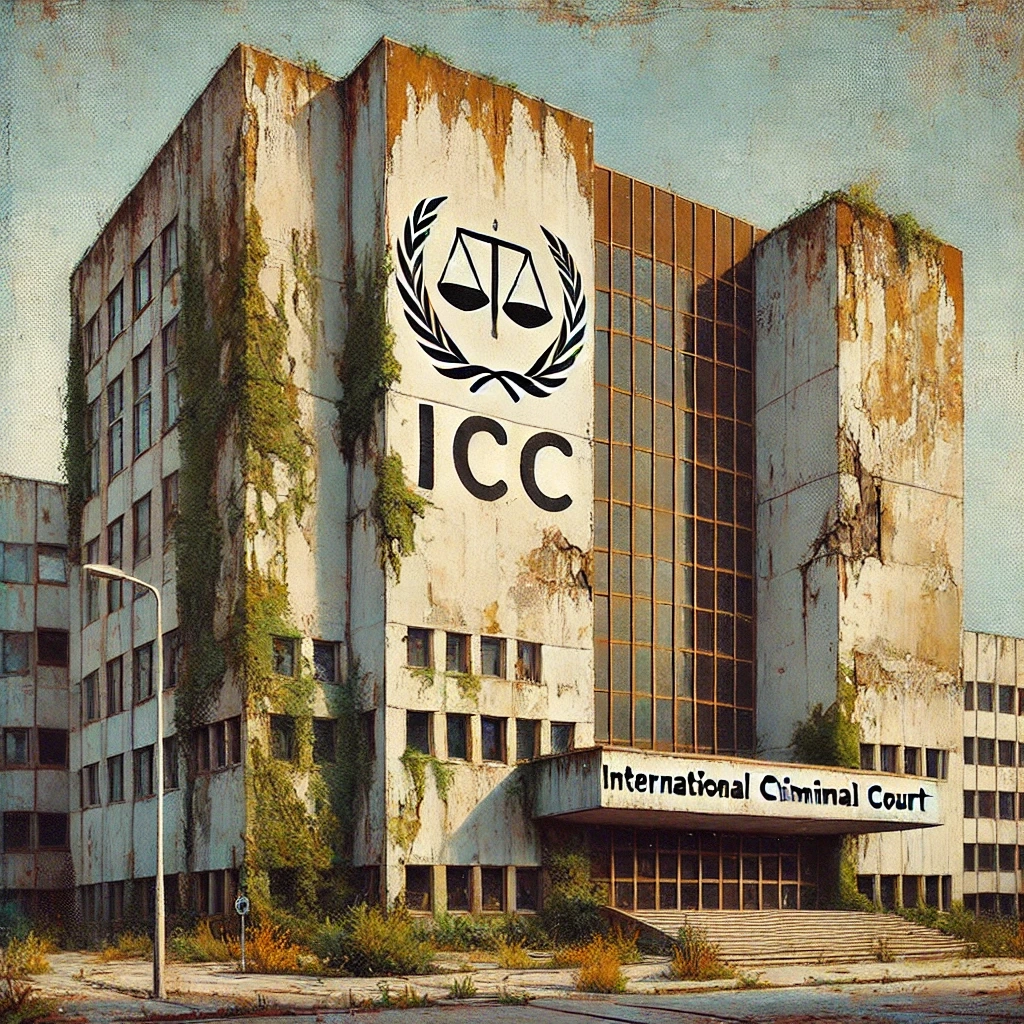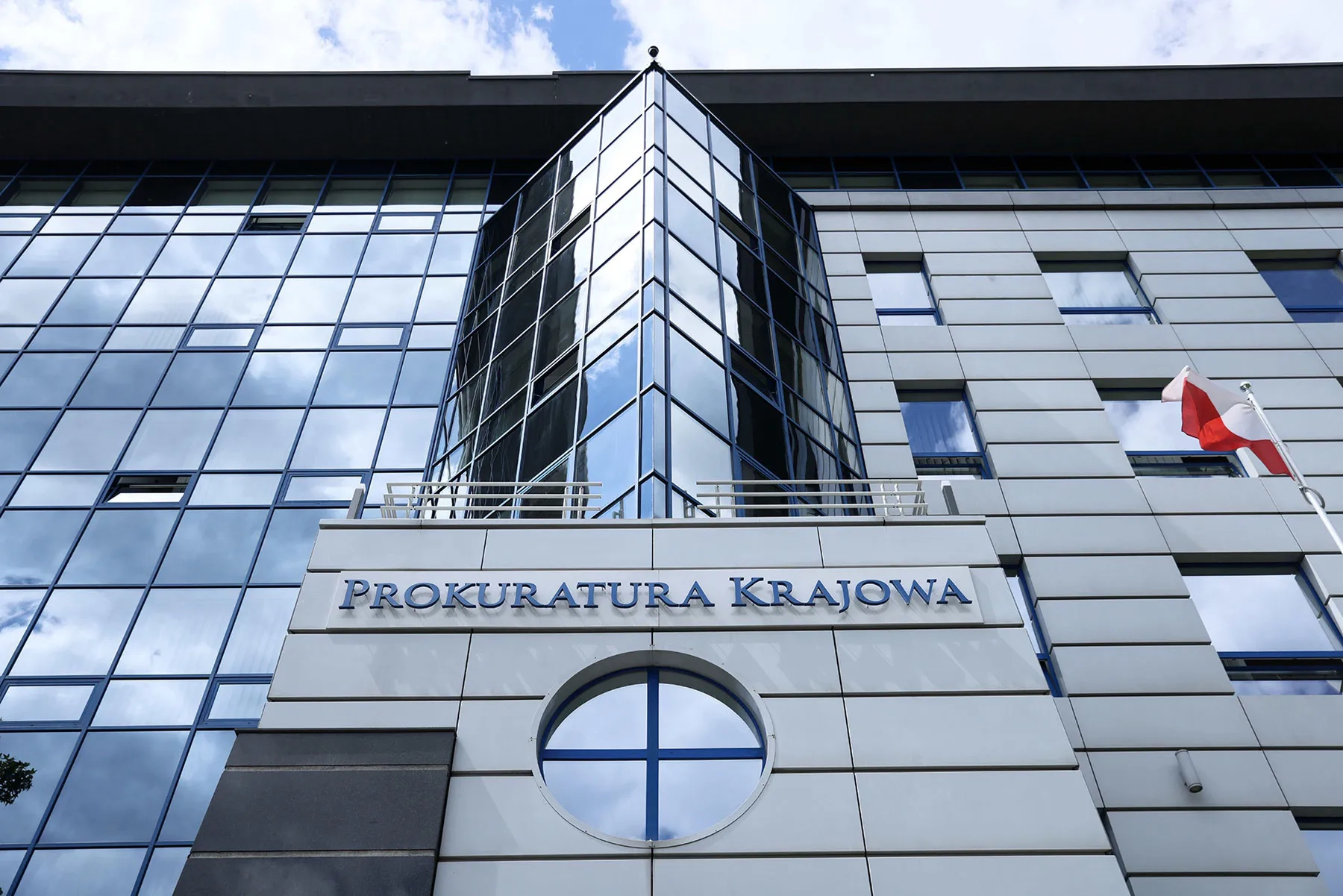Every day, Veronika and I, together with our team, travel across Belarus — from the largest cities to the smallest villages. In Minsk, Brest, Hrodna, Vitebsk, Mahilyow, Homyel, and dozens of district towns, people come out to meet us. Despite the pressure and fear, they greet us warmly.
For us, it is a matter of principle to be close to people — not to hide behind a cordon of security guards, not to speak in vague generalities from behind a television screen, but to look people in the eye and answer their questions directly.
These meetings inspire us. They give us strength. They strengthen our conviction in the most important truth: the country wants change. And that is precisely why — despite threats, pressure, and danger — we continue moving forward. Because we bear responsibility to those for whom all this was begun.
It was the people’s attitude that ultimately made Lukashenko decide to remove us from the presidential race.
Collecting Signatures
Both Viktor Babaryka and I — people accustomed to working with documents, numbers, and procedures — organised the process of collecting signatures with maximum precision and discipline. Special attention was given to the quality of the signature sheets that were to be submitted to the district election commissions. We fully understood: the authorities would scrutinise us with the utmost bias. Any smudge, illegible word, or blurred line could become a formal reason to annul the sheet — or even all signatures collected in a given location.
That is why at every signature collection point we set up canopies, umbrellas, and improvised coverings made from film and wire in case of bad weather. Inside the headquarters, we created an internal audit commission that meticulously checked each signature sheet.
To understand the scale, it is worth recalling: in 1994, Alexander Lukashenko gathered 130,000 signatures when 100,000 were required. Every subsequent campaign, in which he allegedly received millions of signatures, had no relation to the real procedure.
Therefore, when in 2020 Viktor Babaryka’s campaign collected around 430,000 signatures, it was a record for the entire history of presidential campaigns in Belarus. But our goal at this stage was different: we were not aiming for records. The main thing was to submit signatures of the highest quality, pass registration, and gain access to the elections. Only then could we launch a full political campaign — enter debates with other candidates, present our programme to society, and demonstrate professionalism in implementing it.
In total, we collected almost 220,000 signatures — the second-highest result in the history of presidential elections among independent candidates.
All collected signatures were divided into three groups. The first — around 8,000 — we rejected ourselves because they had been damaged by rain, and we knew they would not be accepted. The second group — about 50,000 — contained minor technical errors. In objective conditions, they could easily have been accepted: the error rate did not exceed 2–5%. But, understanding the bias we faced, we deliberately chose not to submit them — to avoid giving even the slightest pretext for disqualification. Finally, the third group — 160,000 impeccably completed and repeatedly verified signatures — was submitted to the election commissions.
However, it was precisely at this stage that Lukashenko decided to eliminate the last real competitor. This was done, as usual, through Lidia Yermoshina — Chair of the Central Election Commission and the chief falsifier of all electoral campaigns in Belarus. She declared that “half of the signatures were invalid.” These were signatures backed by real people, with passports and addresses indicated in the sheets.
Naturally, no verification was carried out. The CEC did not even attempt to imitate a verification process — they simply announced the figures they needed. Particularly telling was the mass annulment of signatures in the most active districts of Minsk — for example, in the Frunzenski district, where civic activity was highest and the organisation of signature submission flawless. I personally delivered these signature sheets to the district election commission.
This was not just a gross violation of electoral law — it was a deliberate attempt at public humiliation of a candidate, specifically in those areas where my support was strongest.
It was especially painful — and they understood this perfectly well — in my hometown of Grodna. All the more so because it was there, using non-budgetary funds, that I had built one of the most beautiful branches of the Belarus High-Tech Park.



Grodno Hi Tech Park Before and After



But let us return to the elections. In Grodna, the two districts — Leninski and Oktyabrski — set up their signature collection points on the same street, under a shared canopy, at two neighbouring tables. People — with the same level of education, civic engagement, and motivation — stood in the same line but signed depending on their place of residence: some at the Leninski district table, others at the Oktyabrski district table.
The result was openly absurd: the percentage of annulled signatures for Leninski district was less than 1%, whereas for Oktyabrski district it exceeded 17%.
It is like throwing two absolutely identical dice — with the same frequency, on the same table, at the same time. But one of them consistently lands on a particular face, showing a given number, while the other — in 17% of cases — allegedly “lands on its edge,” and the throw is declared invalid. At the same time, no one saw the actual throw, nor the die balancing on its edge, nor even that it landed on its edge at all — everyone was simply expected to take the word of the person announcing the result.
To give the procedure a semblance of legality, the Central Election Commission referred to the conclusion of a so-called state expert commission. But this was a deception. An examination had indeed been conducted: the members of the commission worked for about a week and, in their final report, recorded that only about 1% of the signatures were questionable — meaning not deemed invalid, but merely requiring additional verification.
According to the Electoral Code of the Republic of Belarus, signature sheets can be declared invalid only if the share of invalid signatures exceeds 15%, and only with documented grounds, ensuring the right of appeal and the participation of both sides.
However, when the signature sheets landed on the desks of two officials — Oksana Turlyuk, head of the Grodna Department of the State Committee of Forensic Examinations, and Dmitry Grinevich, deputy head of the department for the Grodna region — they, contrary to the commission’s conclusion, signed a protocol stating that 17% of the signatures were invalid.
At the same time, no additional verification was carried out: not a single citizen was summoned to confirm their signature, and none of the conclusions contained any description of the methodology for conducting handwriting analysis. For more details on how exactly this falsification was carried out, see our video.
The decision taken by Turlyuk and Grinevich — and, without doubt, handed down to them from above — was aimed at artificially surpassing the 15% threshold, which formally provides grounds for refusing to register a candidate. In essence, this constitutes a criminal offence, as it involves:
Abuse of official authority;
Obstruction of citizens’ electoral rights;
Gross violation of the Constitution of the Republic of Belarus;
And, in international legal terms, an element of the usurpation of power.
Later, two members of the so-called “expert group” confirmed to me in a private conversation that the decision was politically motivated and taken by Turlyuk in collusion with Grinevich — in direct contradiction to the commission’s findings. Moreover, they expressed their readiness to give official testimony in court when the appropriate moment comes.
Their admission will become a key piece of evidence in future civil and criminal proceedings, within which the named officials will face charges of document falsification, abuse of power, and unlawful interference in the electoral process.
The same scheme was applied to Viktor Babaryka. More than half of the signatures collected in his support were declared invalid — without proper examination, without verification of signatures with the participation of voters, and without any explanation. Although the formal grounds for refusing his registration were the criminal charges brought against him…
To be continued









